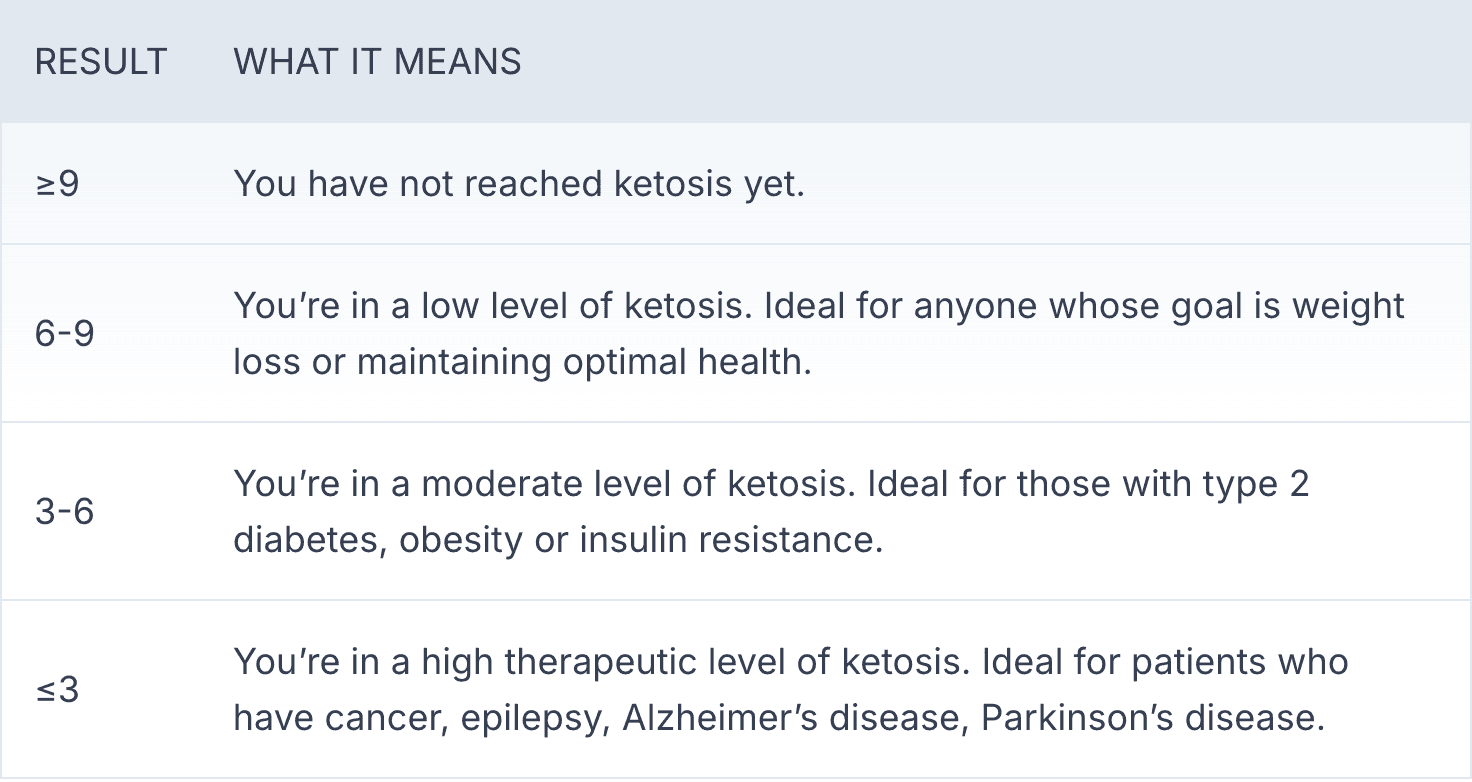
Glucose Ketone Index (GKI) Calculator
Quickly calculate your glucose ketone index (GKI). Our GKI calculator conveniently lets you enter blood glucose in mg/dL or mmol/L.
What is the Glucose Ketone Index (GKI)?
What is the Glucose Ketone Index (GKI)?
The Glucose Ketone Index (GKI) is a ratio used to measure the balance between glucose and ketone levels in the body. Calculating the GKI is useful for people on the ketogenic diet, fasting, or tracking their metabolic health.
Those familiar with the keto diet know all about ketones. Ketones are an alternative fuel source for your body when glucose is in short supply.
Our GKI calculator helps you assess your state of ketosis and your metabolic flexibility. It shows the relationship between your ketone levels and your glucose levels.
Stress, fasting, or a high-fat meal can affect your ketone measurement. So a single reading isn’t an accurate representation of your health.
But the GKI combines glucose and ketone levels for a more complete picture. For example, even with ideal ketone levels for weight loss, high blood glucose levels can affect your health goals and stop you from getting the full benefits of ketosis.
Your optimal GKI number depends on your health goals. But generally, a lower GKI is the preferred result.

How to calculate Glucose Ketone Index (GKI)
The GKI formula is quite straightforward:
By dividing the blood glucose result by 18, it converts the reading from mg/dL to mmol/L. Our GKI calculator gives you the ability to insert the blood glucose result in both measures.
What are the factors affecting your GKI?
Generally, many lifestyle and environmental factors can affect your GKI. Because both ketone and glucose levels react to diet, exercise, stress, and environmental conditions.
If you’re trying to maintain a low GKI number, keep the following in mind:
Fasting: After eating, it can be pretty tough to stay in a very low glucose-ketone range because there’s a degree of glucose increase. Practicing intermittent fasting can be beneficial for decreasing blood glucose levels, keeping GKI low, and maintaining good health.
Nutrition: If your glucose levels are high, eating a ketogenic diet and watching out for hidden carbs can help improve your GKI ratio.
Exercise: High-intensity exercise can temporarily increase glucose levels due to glycogen breakdown. But it can also increase ketone production later on, potentially lowering the GKI. Aerobic exercise may promote fat oxidation and ketone production, while anaerobic exercise may increase glucose levels due to the body's reliance on glycogen.
Sleep: Lack of sleep can increase insulin resistance and cortisol levels, leading to higher blood glucose and a higher GKI. Adequate, restful sleep supports balanced blood glucose levels and can promote ketosis, leading to a lower GKI.
Stress: When you’re stressed, hormones like cortisol and epinephrine are released, which can cause blood sugar to rise. Focusing on daily stress-reducing practices can help keep the ratio low.
Why is GKI useful?
Calculating your glucose ketone index (GKI) is useful for an overview of your metabolic health, therapeutic applications, and monitoring ketogenic diets.
Metabolic Health: GKI is a good indicator of how well your body is switching between glucose and fat as fuel sources.
Therapeutic Applications: It’s particularly useful if you’re using a ketogenic diet for therapeutic reasons like managing epilepsy, cancer, or neurological conditions.
Nutritional Ketosis Monitoring: Helps you on a ketogenic diet to monitor how deep you are in ketosis, adjusting your diet as needed to reach your goals.
Our GKI calculator is a valuable tool if you’re looking to optimize your metabolic health, especially in the context of a ketogenic or low-carb lifestyle.
Share this calculator